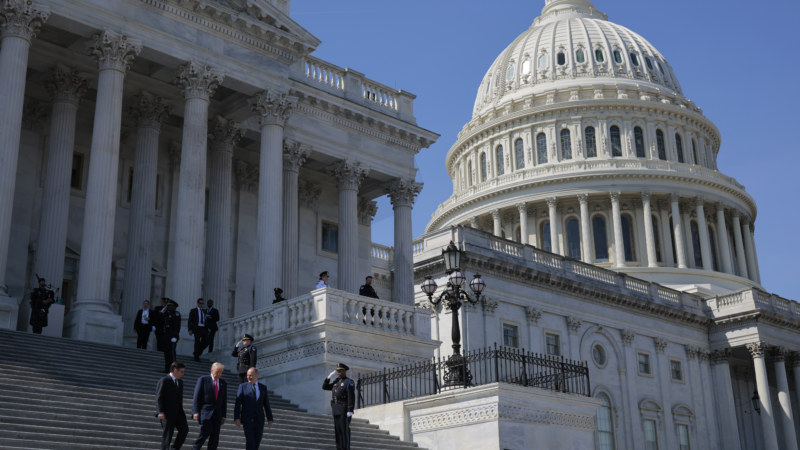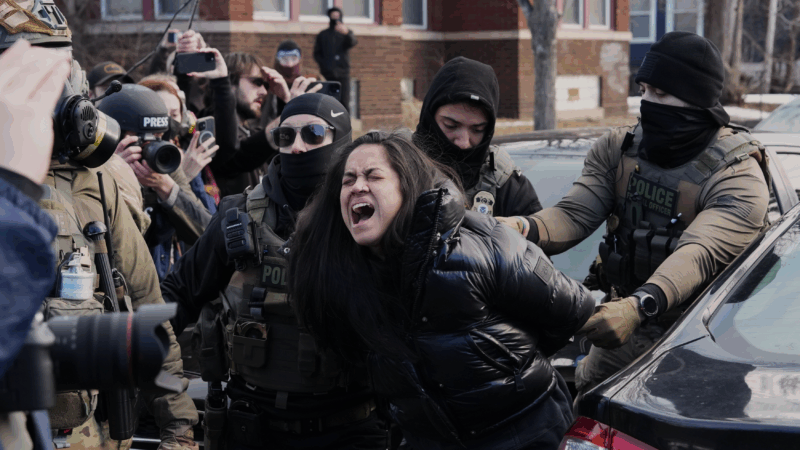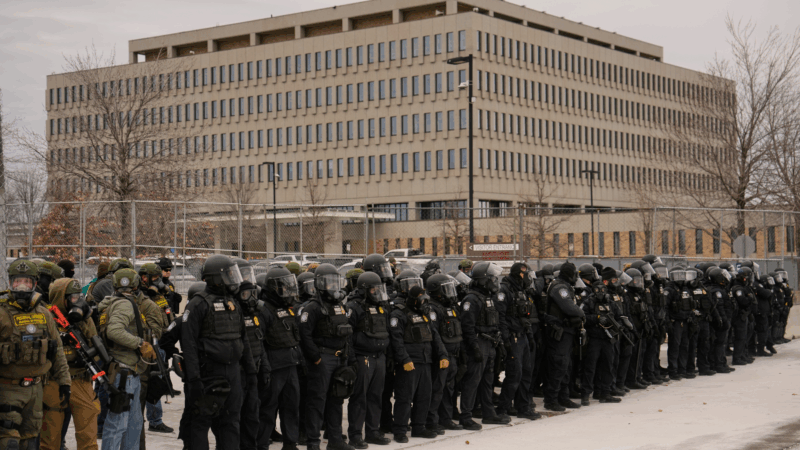WATCH LIVE: NPR, PBS heads answer lawmakers’ allegations of bias
The CEOs of NPR and PBS are appearing Wednesday before a House subcommittee on government efficiency, chaired by Republican Rep. Marjorie Taylor Greene, where they will answer questions about perceived political bias at the public broadcasters.
A livestream begins immediately below at approximately 10 a.m. ET.
The hearing, entitled “Anti-American Airwaves: Holding the Heads of NPR and PBS Accountable,” was called by Greene in February to examine accusations by conservatives that news and cultural programming at the radio and television networks have a profound liberal bias. She has expressed skepticism that any federal funds should go to public broadcasting.
PBS President and CEO Paula Kerger, who worked at New York City’s WNET public television before taking over the reins at the network nearly two decades ago, will appear beside NPR CEO Katherine Maher, who came to the public broadcaster last year from Web Summit. She is also a former CEO and executive director at the Wikimedia Foundation.
Wednesday’s hearing is part of a larger Republican-led effort to defund the Corporation for Public Broadcasting (CPB), established by Congress in 1967 as a private, non-profit corporation to distribute federal money to NPR, PBS and other public broadcasting entities. Sen. John Kennedy, R-La., and Rep. Scott Perry, R-Penn., introduced legislation to bar all funding for the CPB. Meanwhile, Brendan Carr, President Trump’s newly appointed chairman of the Federal Communications Commission, has also initiated inquiries of NPR and PBS stations, arguing that their corporate underwriting spots violate federal laws and policies because they too closely resemble commercial advertisements.
NPR receives about 3% of its funding from the government, either directly via CPB or through its member stations, who pay fees to carry its programming. PBS receives 16% of its funds from the CPB.
NPR reaches 43 million listeners each week with its flagship news programs, Morning Edition and All Things Considered. Its programming is distributed by 230 member stations around the country, which together hold the licenses to 1,300 local public broadcasters. The programming at PBS ranges from the acclaimed News Hour to children’s programming such as Daniel Tiger.
Disclosure: This story was reported and written by NPR Correspondents Scott Neuman and David Folkenflik. It was edited by Deputy Business Editor Emily Kopp and Managing Editors Gerry Holmes and Vickie Walton-James. Under NPR’s protocol for reporting on itself, no NPR corporate official or news executive reviewed this story before it was posted publicly.
Bessemer data center developer to request rezoning for additional 900 acres
The city’s attorney informed council members of the request on Tuesday, warning that there may be media scrutiny.
Yes, introverts and extroverts can be good friends. Here’s how
Can't seem to match the energy of a good friend? You might be on opposite ends of the personality spectrum — and that's OK. Here's how to foster deep connections despite your differences.
They quit their day jobs to bet on current events. A look inside the prediction market mania
Prediction market apps are thriving in Trump's second term, with traders betting on migrant deportations to election outcomes. A community of young, mostly male and very online traders are driving the industry's bonanza.
Major plumbing headache haunts $13 billion U.S. carrier off the coast of Venezuela
The crew of USS Ford is struggling to handle sewage problems on board the Navy's newest carrier.
Events in Minneapolis show how immigration enforcement has changed. What’s the impact?
Minneapolis is at the center of sweeping, evolving federal immigration push. It demonstrates how different immigration enforcement is under Trump's second administration - and raises questions about the lingering effects on local communities and law enforcement.
Trump is threatening to cut funding from sanctuary cities. Here’s what to know
President Trump says he's cutting federal money to sanctuary cities. But courts have blocked similar moves, ruling that the federal government can't use funding to coerce state and local governments.






